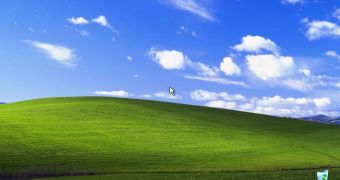Windows XP, the 11-year-old operating system, is still installed on nearly 39 percent of computers worldwide, so Microsoft is still struggling to convince all users to make the move to a newer platform.
As far as low-cost airline operator easyJet is concerned, migrating from Windows XP is a priority for the company, and the process has already started to provide 9,000 employees with an improved operating system.
easyJet CTO Andy Caddy told ZDNet that Windows 7 would be soon installed on the company’s 2,500 laptops and desktop computers. The switch has started in 2010, but it takes nearly 3 years to complete, he said.
“XP served its purpose for a long time. It may not have had the bells and whistles but it did its job very satisfactorily. It was reliable and it did what it needed to do — and people have sweated that asset. From our point of view that's exactly what we did. We're a very low-cost company and with a very lean IT budget and we thought we'd get the most out of the technology,” Caddy explained.
Windows XP is currently the second most popular operating system in the world, according to figures provided by Net Applications, while Windows 7 still keeps the leading position.
While many users and businesses have expressed their intention to stay with Windows XP even after the April 8, 2014 deadline, easyJet says that the 11-year-old platform is no longer a secure solution for companies.
“We've had examples where it's taken four or five minutes to boot up and this is in an environment where pilots and crew are going into crew rooms and they have got to be on a plane in 15 minutes, so you can't have that. We set this target where everything had to be under 30 seconds and we beat that by a long, long way,” Caddy continued.
That’s exactly the sort of attitude Microsoft hopes to see from all of its users, as the company urgently needs to move all its users to Windows 7 or preferably to Windows 8, the operating system that’s yet to excite.

 14 DAY TRIAL //
14 DAY TRIAL //